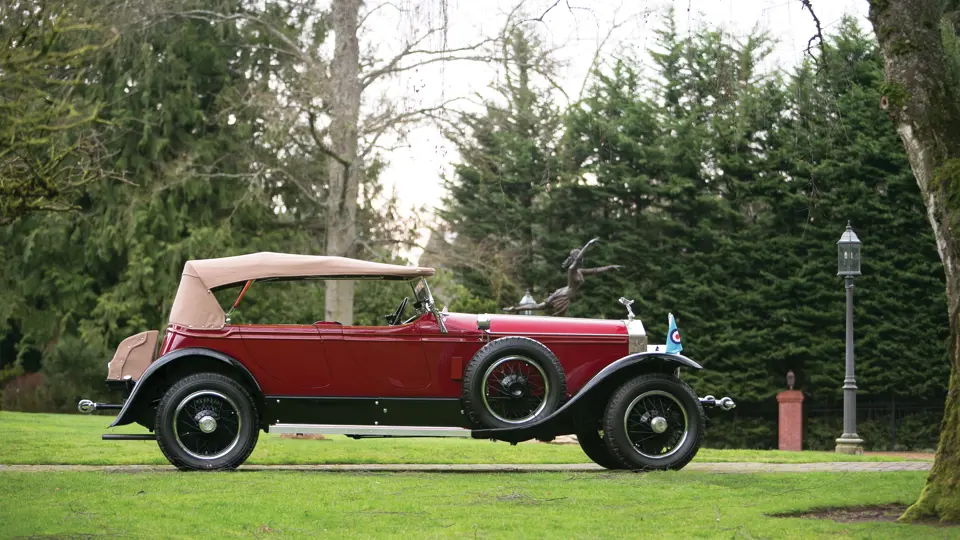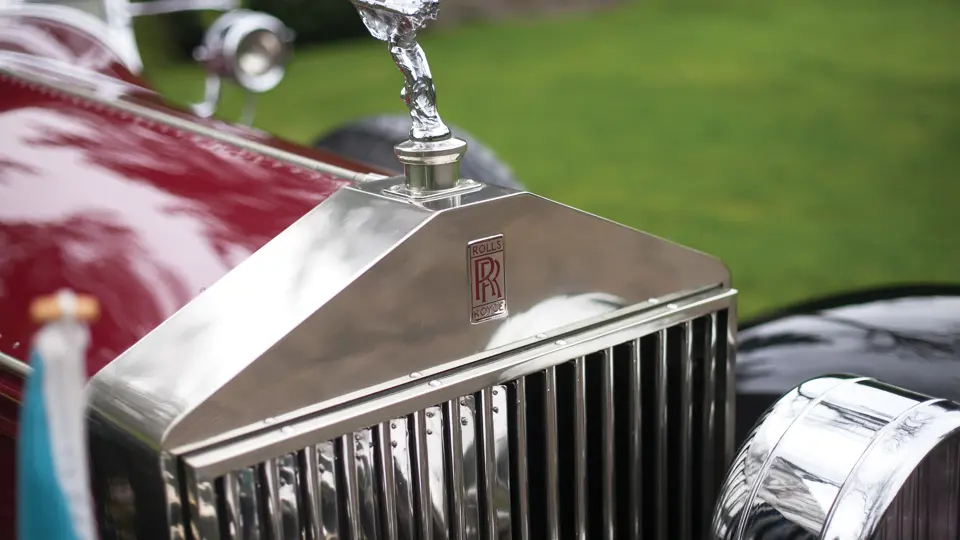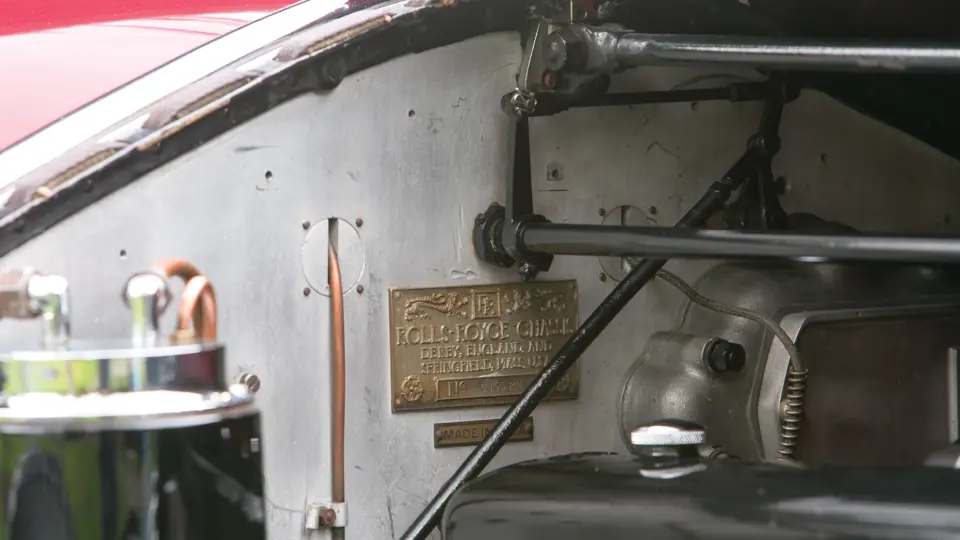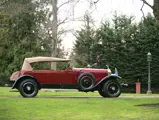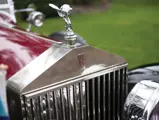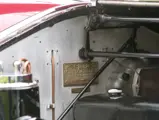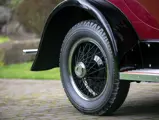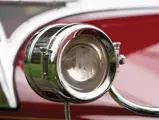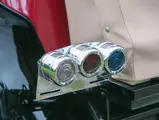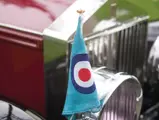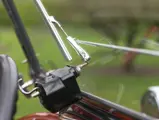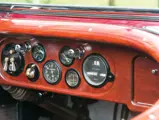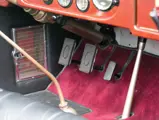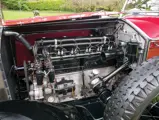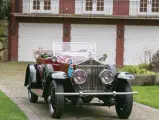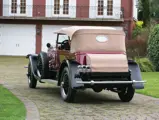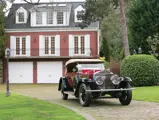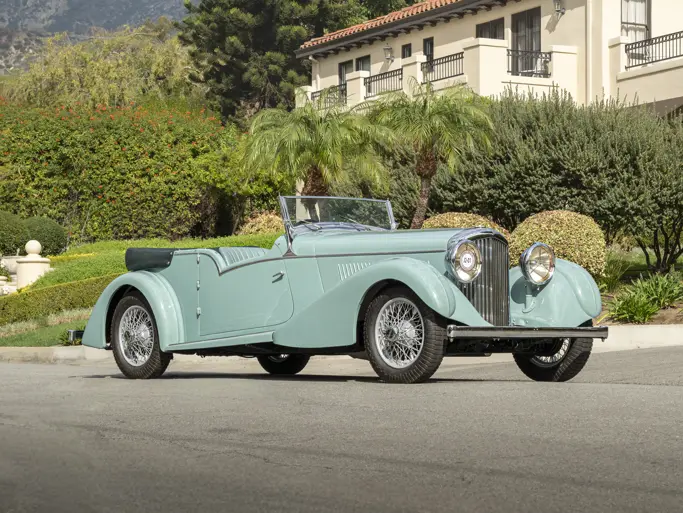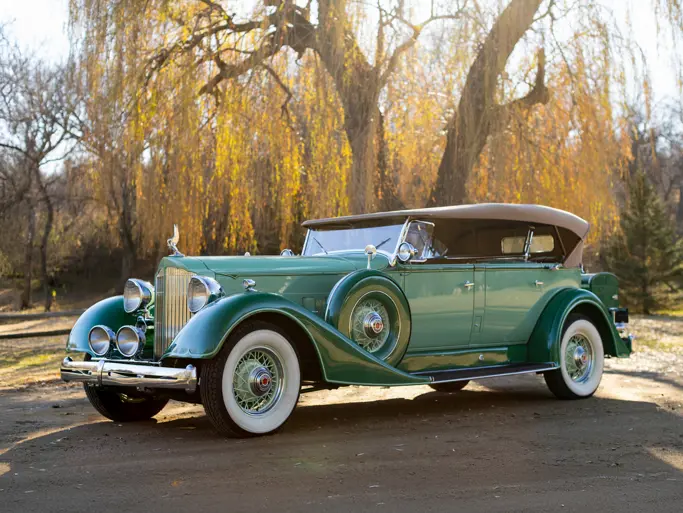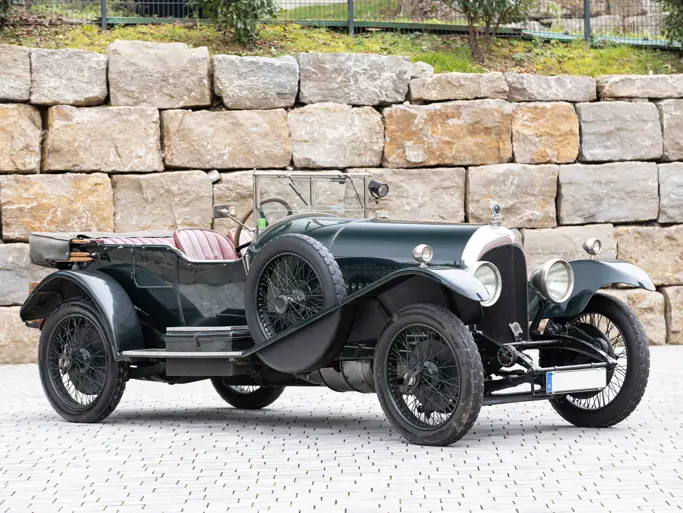113–120 bhp, 7,688 cc OHV inline six-cylinder engine with single two-jet carburetor, with starting carburetor and vacuum fuel feed, three-speed standard transmission, semi-elliptic front suspension, cantilever rear-spring suspension, four-wheel brakes, and independent rear brakes operated by hand lever and friction-type, gearbox-driven servo-assist. Wheelbase: 143.5 in.
When we see a Rolls-Royce, we think of the quintessential British car. However, not all Rolls-Royce cars were from England. In fact, many enthusiasts believe the American versions were more superb than the British ones. Beginning in 1919, in Springfield, Massachusetts, many pre-World War II Rolls-Royce cars were made in America, beginning with the Silver Ghost.
The introduction of the British New Phantom in 1925 meant that the American version needed to be left-hand drive, with a complete re-design of the British New Phantom engine. It took another year of testing before the carburetor and manifold could be moved to the left of the engine to accommodate for the left-hand drive position. The American driver preferred a three-speed transmission instead of the British four-speed gearbox, so this and other adjustments were affected, resulting in a much more attractive car to the American buyers.
Like their British siblings, the American chassis were fitted with custom-made bodies, usually by Rolls-Royce Custom Coachwork and Brewster. Some chassis were ordered from new with two bodies, a formal one and a sporting one. Many original bodies were eventually replaced by new reproduction bodies, as with this example, but there was no real loss in overall value, assuming that the workmanship and style were as it would have been when new.
The Phantom I’s cantilever springing made for a rather high-set chassis, which appealed to those who wished to make a statement with their cars. It was a favorite with royalty, other heads of state, and many Indian princes, who all tried to out-do each other by commissioning some of the most magnificent and extravagantly fitted motor cars of the 1920s. The Phantom I was the model most often selected, due not only to Rolls-Royce Motors’ reputation as the best car in the world but also to the fact that this newly designed, sturdy chassis could support the heaviest and most elaborate coachwork.
This Phantom I was delivered new to Hollywood actor Lewis Stone on Christmas Eve 1927, and it first wore an enclosed seven-passenger Arundel design by Brewster. After years of faithful service, in the early 1970s, the low-mileage, excellent-condition chassis was re-bodied in Australia, by Peter Lamm’s team of skilled coachbuilders, as an exact reproduction of another Brewster body, the Derby, which was a fully collapsible, four-passenger sporting body. From its sloping windshield, drum headlamps, and tubular bumpers to its distinctive dual side-mounted spares and its elegant oval rear window that culminates in its elegant rear quarters, this car exudes sporting yet tasteful elegance. It is now finished in bright red with a correct tan cloth top, and it’s being offered for the first time in over two decades.
It is a grand and imposing target-car for many collectors, not only because of its market value but also because it can be enjoyed for show or go, and it will be enthusiastically welcomed in the most prestigious car clubs and premier concours events.
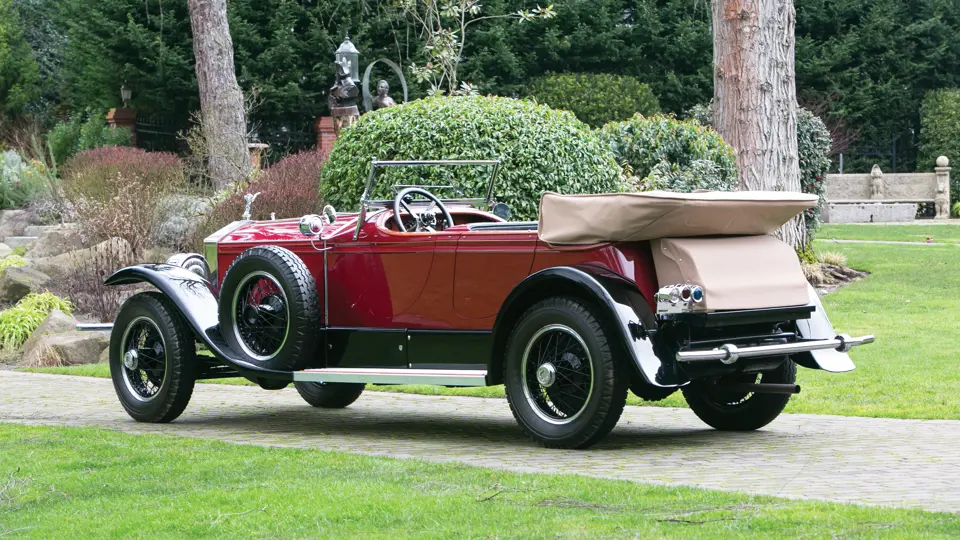

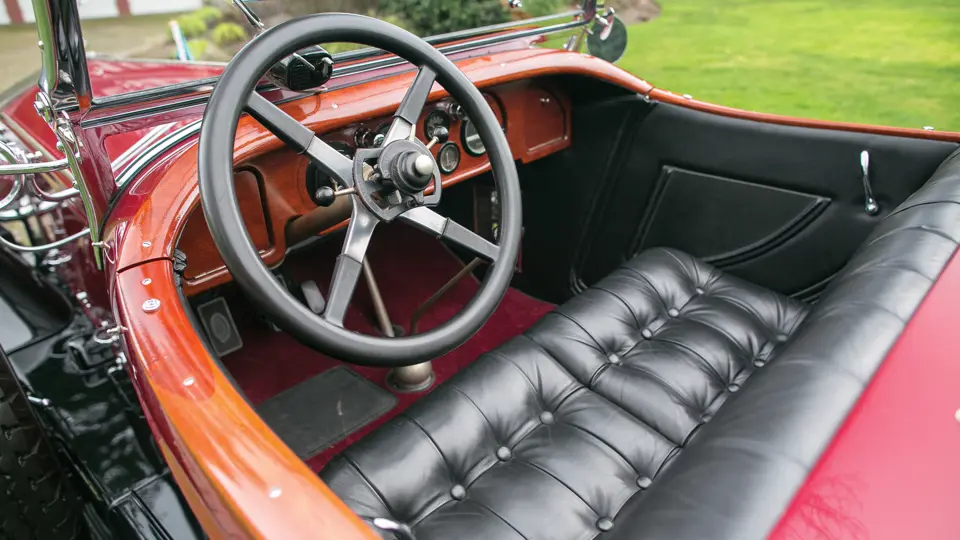

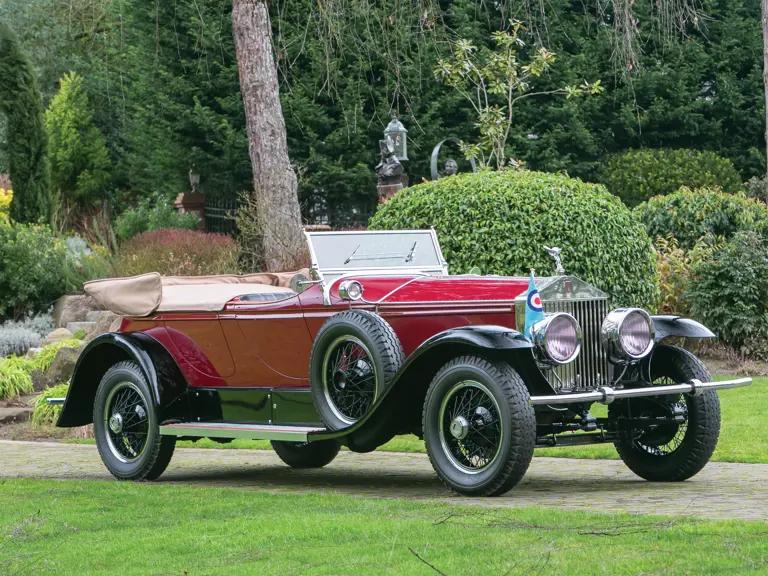
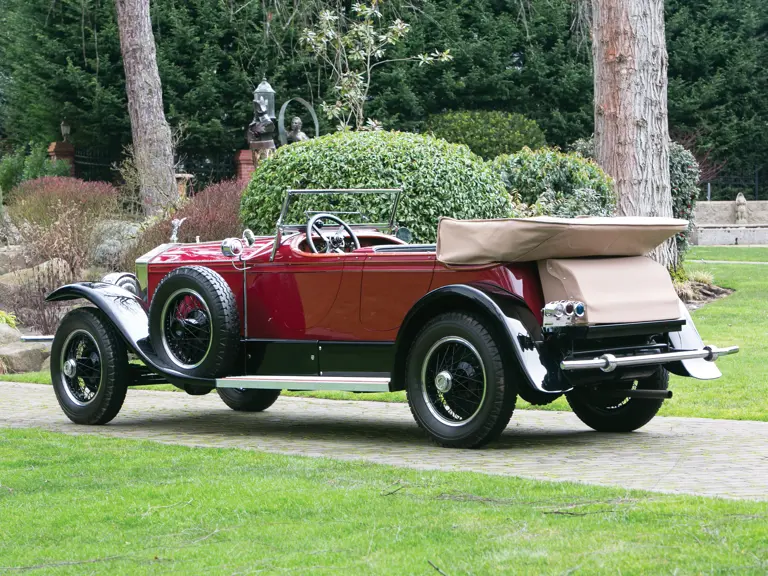
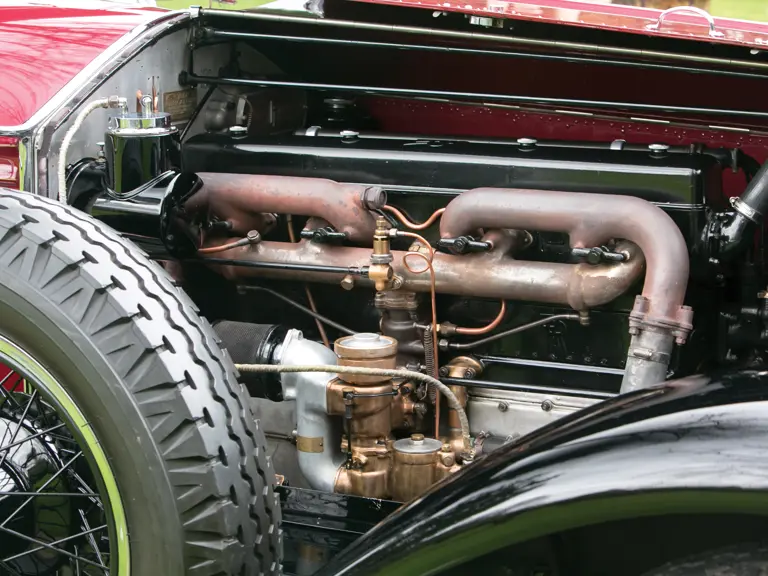
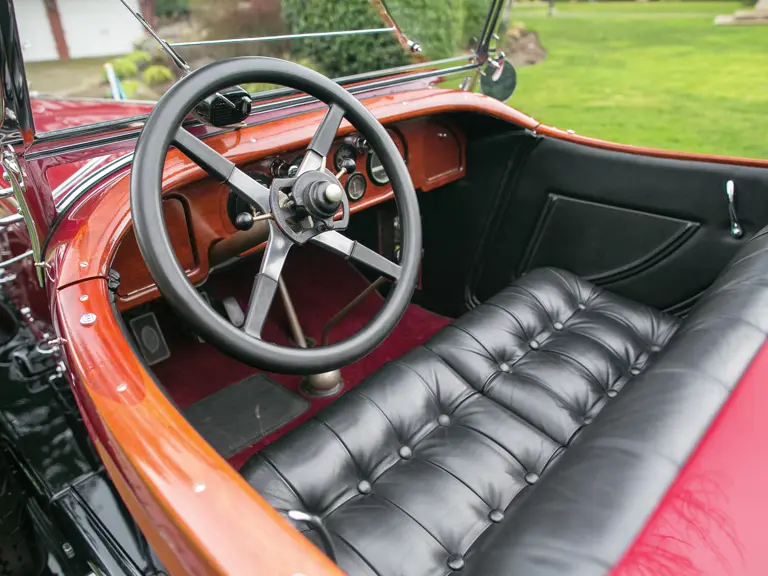
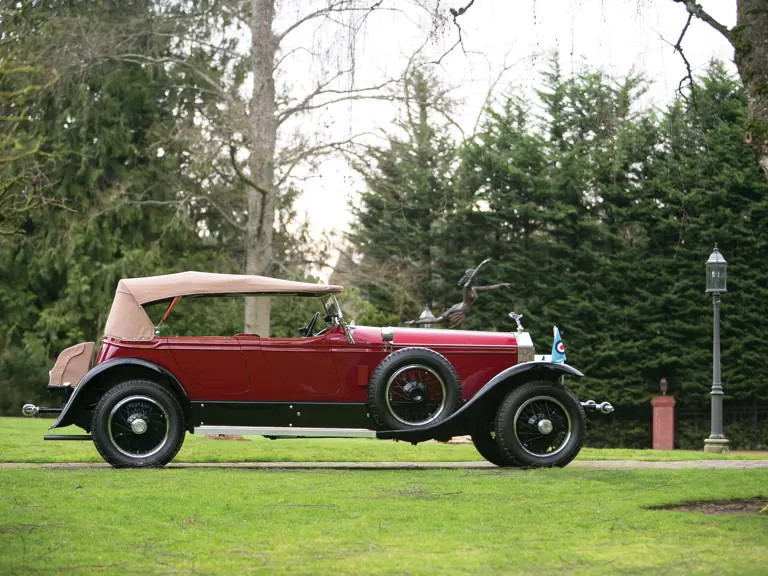
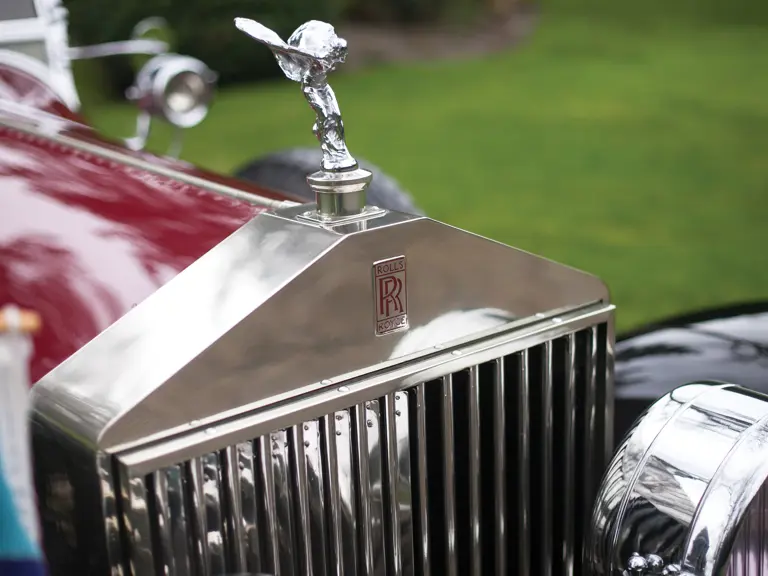
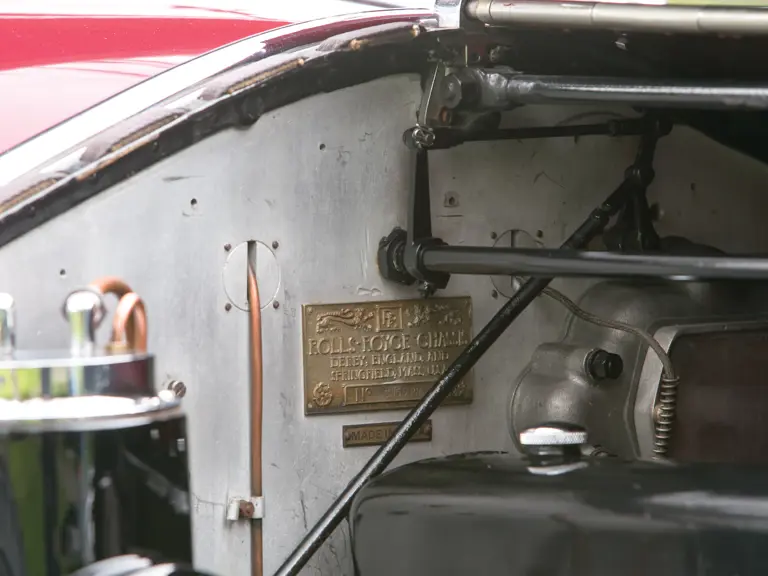
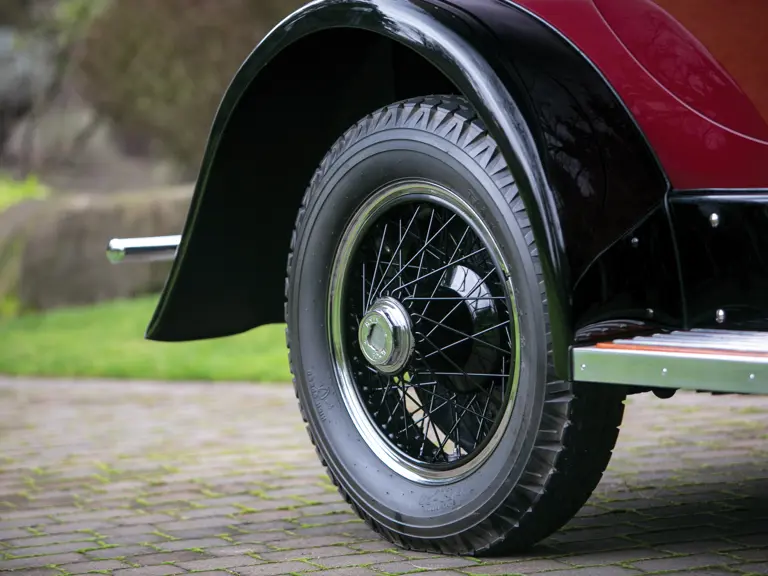
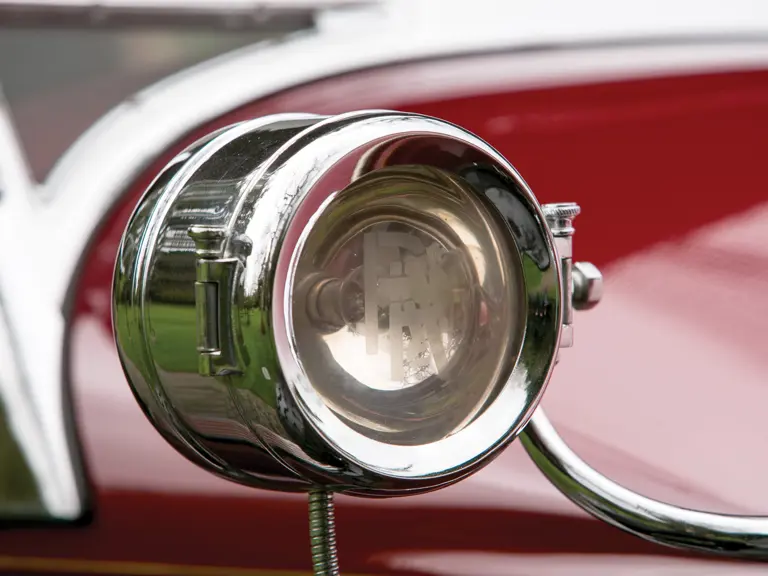
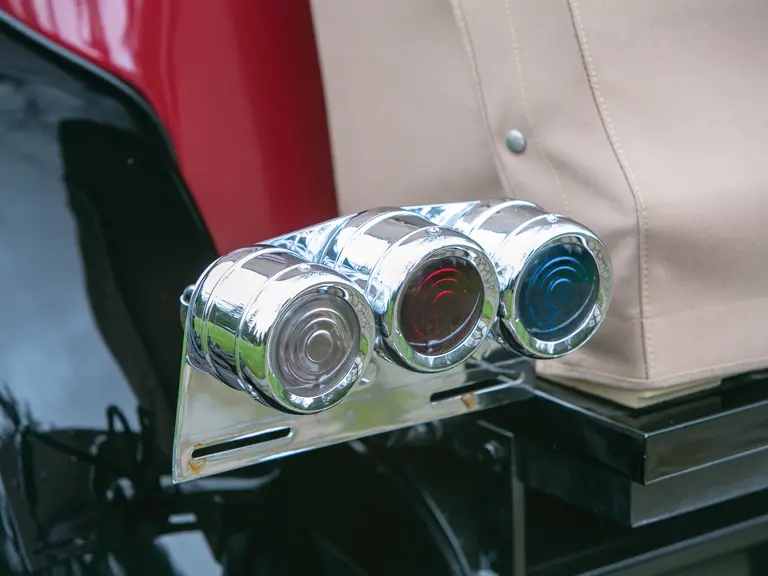
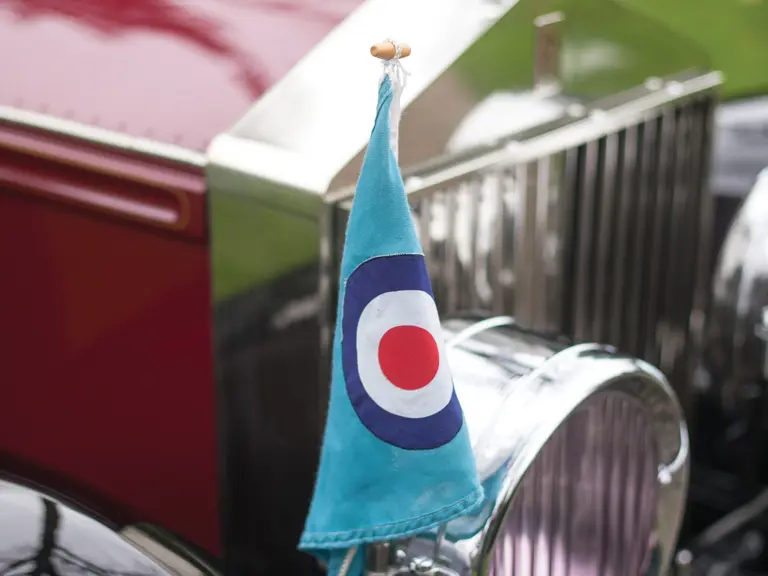
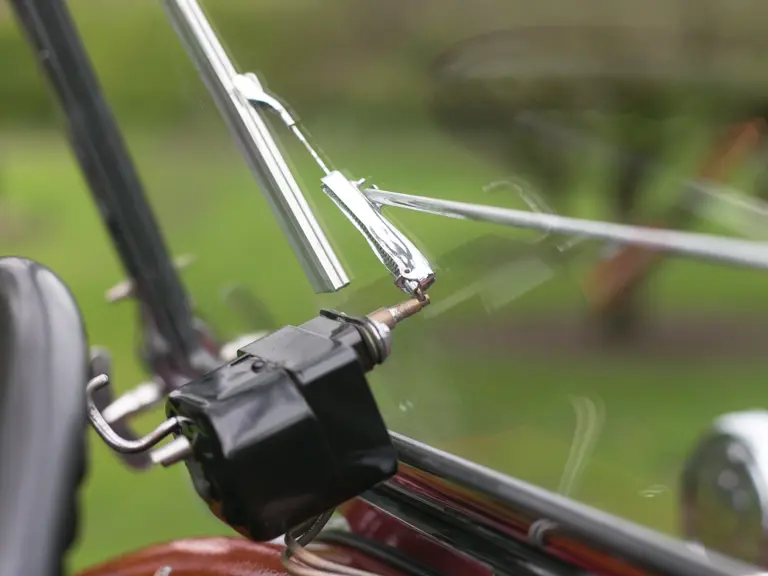
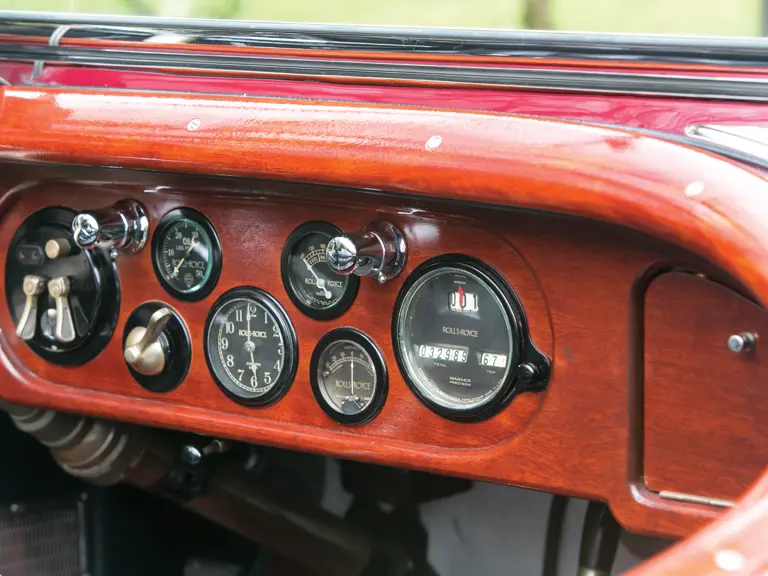
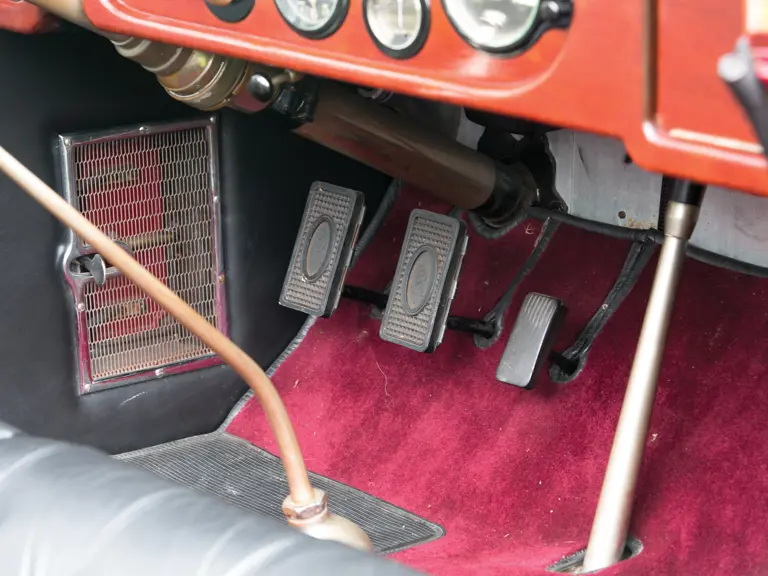
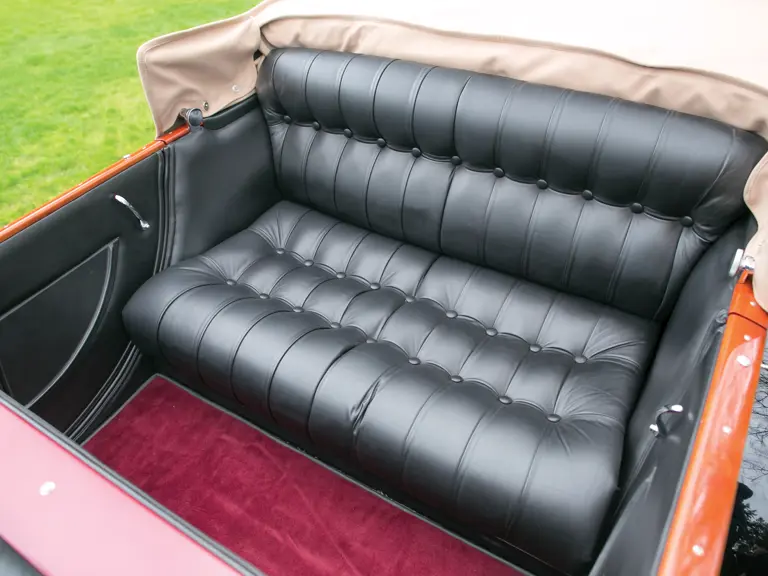
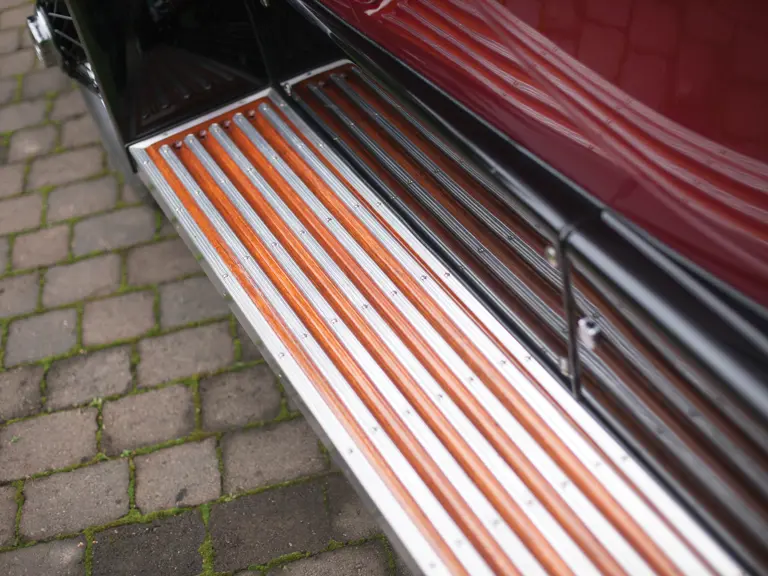
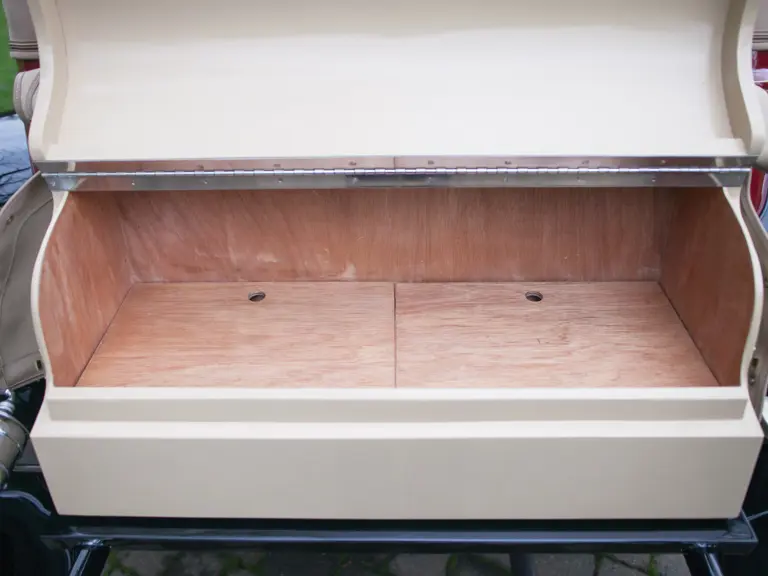
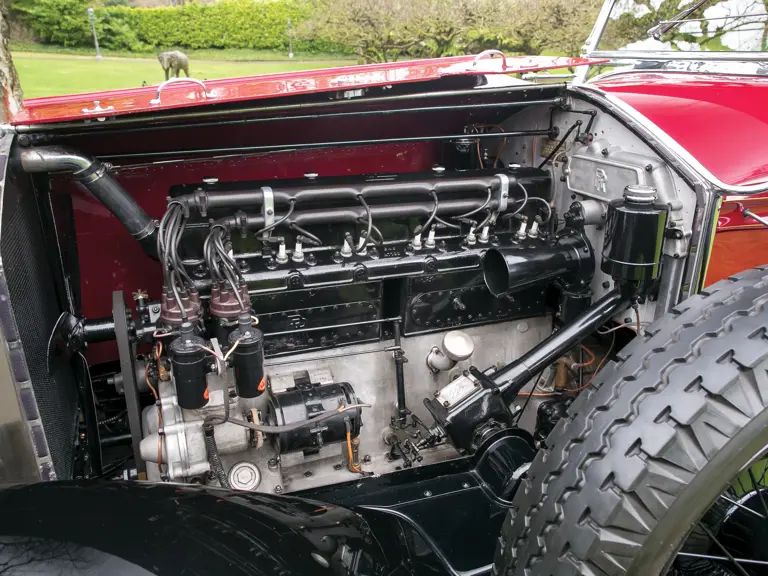
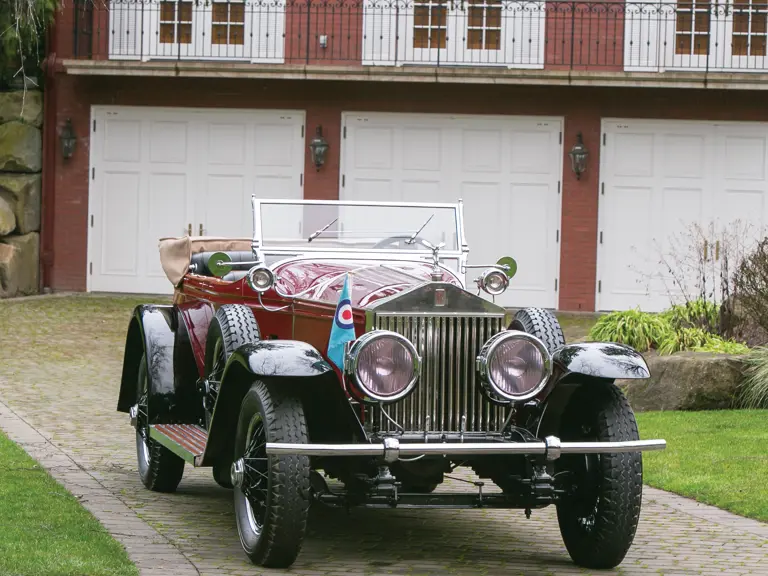
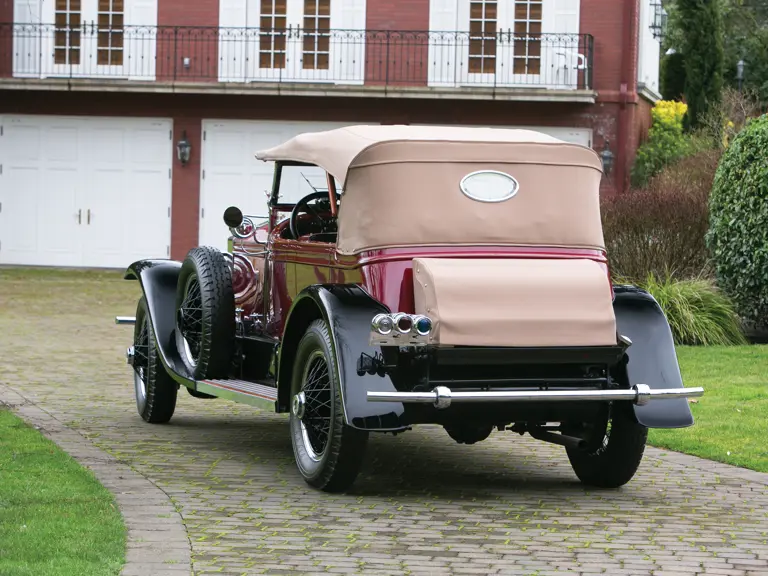
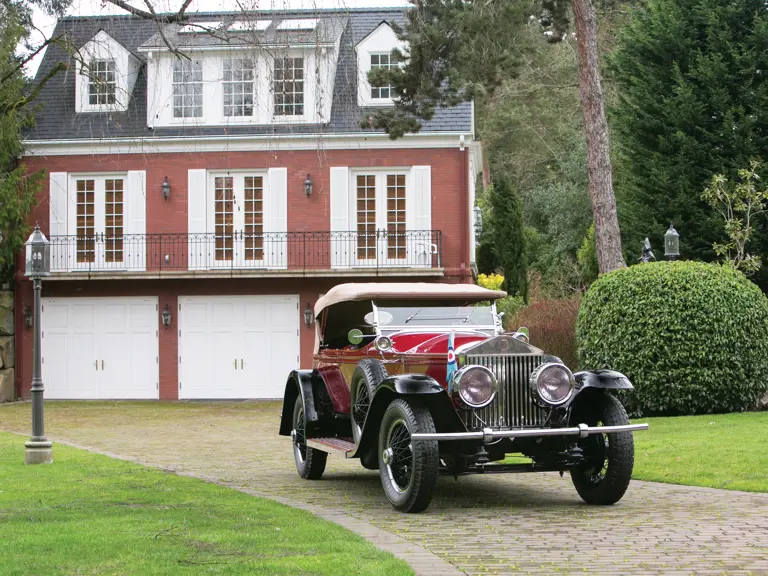

 | Amelia Island, Florida
| Amelia Island, Florida
